Pennsylvania boy followed by stranger recounts thwarting abduction attempt
A 10-year-old boy in Pottstown, Pennsylvania, experienced a moment of panic when he was followed by a stranger as he was walking home from school on Friday. Luckily, a local store owner was able to step in and help him. FOX 29 Philadelphia reports.
A mother of five is sharing the way she approaches the "stranger danger" talk with her daughters — and why her important take on the topic has gone viral on TikTok.
Marcie Whalen, a former teacher based in Canada, often posts parenting PSAs on her TikTok page. Yet there was one video in particular that users jumped all over.
"I didn’t want my kids to become so fearful of people we don’t know," Whalen told Fox News Digital in an interview.
PARENTS ARE WARNED CHILD KIDNAPPINGS MOST LIKELY ATTEMPTED DURING THESE DISTINCT TIMES OF DAY
She went on, "[The message is], ‘Be kind to people but stay away from some people if [you notice] strange behavior — [meaning] anyone making you feel unsafe, or anyone asking you to go somewhere with them."
"'If someone, anyone, is asking you to keep a secret, that’s also not OK,'" she added of her message.
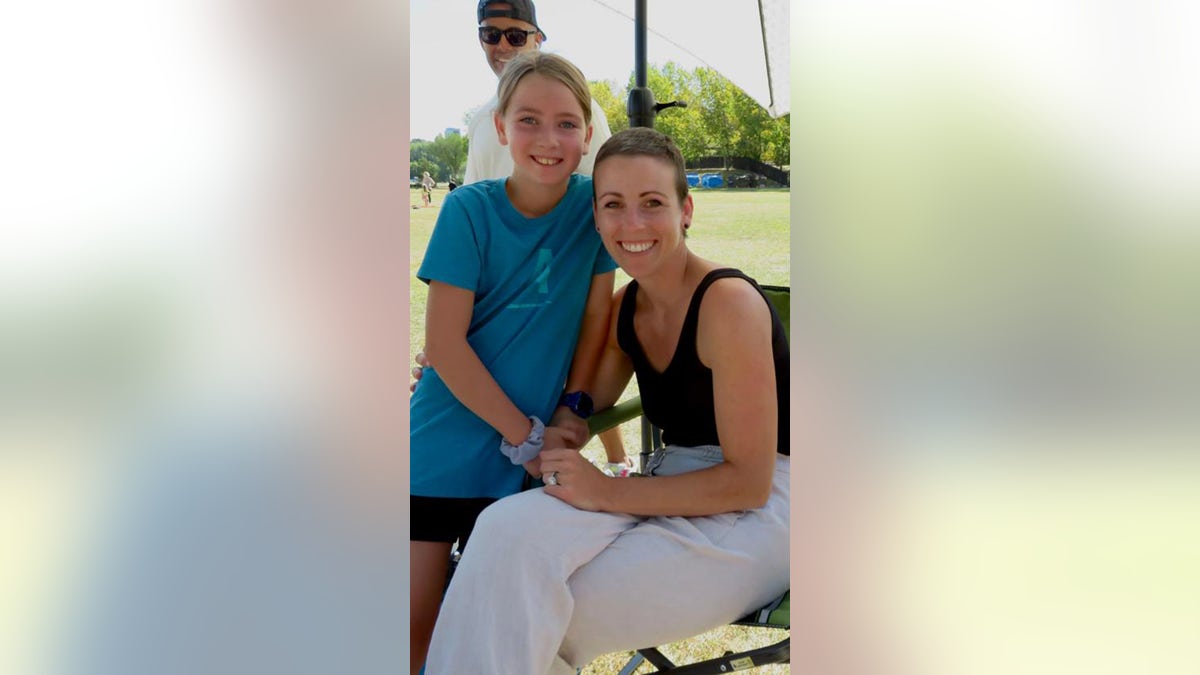
Marcie Whalen of Leduc, Alberta, Canada, poses with one of her five daughters. Whalen has gone viral on social media for sharing how she broadens her discussion about "stranger danger" with her kids. (Marcie Whalen)
"It’s a tricky concept," she said, "but the more they can understand, the more they’ll recognize strange behavior."
In the video, which garnered millions of views across social media platforms, Whalen revealed that she doesn't just talk about "stranger danger" with her kids — but "strange behavior" as well.
The idea is to have children not only understand that they should be wary of strangers, but also of people they may know — or who may know their parents — and are exhibiting behavior that doesn’t seem right or makes the child feel uncomfortable.
Whalen starts her video by explaining that she understands teaching stranger danger is a tactic that’s meant to keep kids safe and protected.
In addition to teaching her kids about "stranger danger," Whalen teaches them about what "strange behavior" means – in reference to all people – whether her kids know them personally or not.
"But most people are good people, and we want our girls to be outgoing and have conversations with people and to, you know, be hospitable to those around them," Whalen said in the footage.
"So instead of talking about strangers, we talk about strange behavior because the thing is, children are most often abused or hurt by people they know – whether it’s a close family member or acquaintance, it’s very rarely a stranger."
"And so, I want my kids to understand what strange behavior is," she explained.
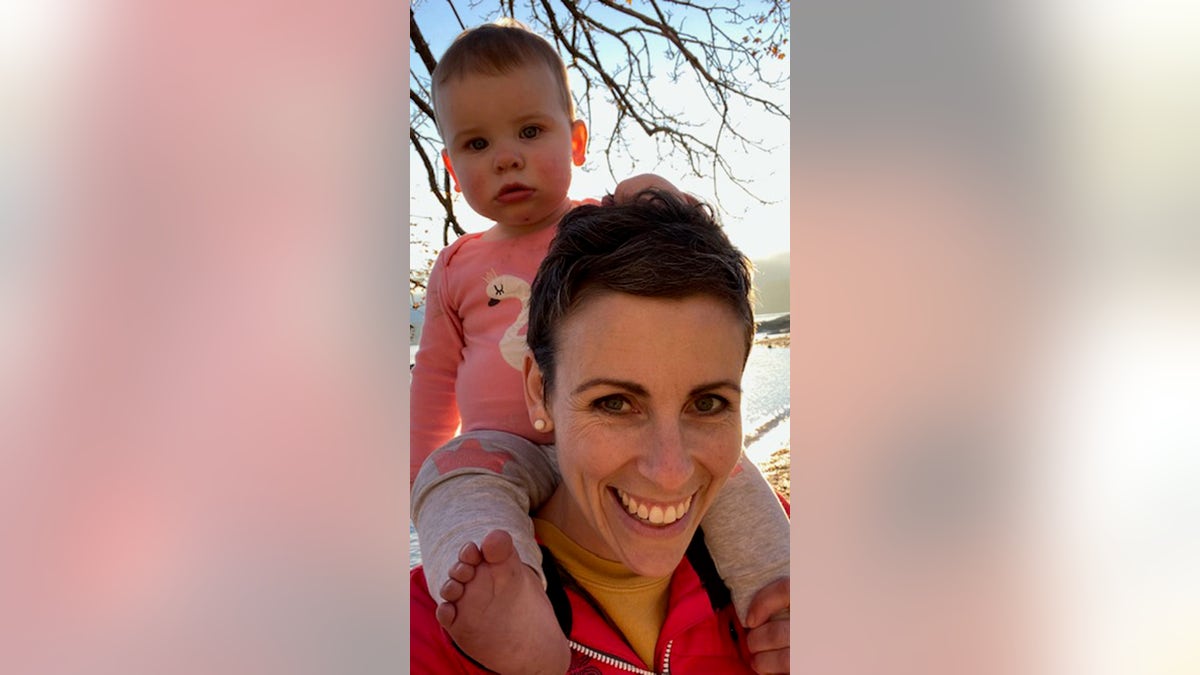
Whalen said she educates her daughters about "strange behavior" rather than having them fear every stranger who walks by or approaches them. "We don't need to raise paranoid, anxious kids telling them there's a bad guy at every corner," she said. (Marcie Whalen)
The Nemours Foundation, a Jacksonville, Florida-based nonprofit dedicated to improving the health of children, reports that most cases of sexual abuse of a child involve a "close trusted adult or family member who abuses the child's trust."
"Often, the child is pressured or talked into the activity, offered gifts or asked to keep secrets, not physically forced into it," the organization says on its website.
And in more than 90% of child sexual abuse cases, the child or family knows the perpetrator, according to a medically reviewed article published by VeryWell Mind.
VIRAL TIKTOK HAND SIGNAL SAVES TENNESSEE WOMAN'S LIFE: HERE'S WHAT IT MEANS
"Asking them to keep a secret — ‘This is just between you and I. Don’t tell your parents’ — that’s strange behavior," Whalen said in her video. "Asking them to go somewhere without their mom or dad — strange behavior."
"And my girls understand what to look for," she added. "Whether it’s in somebody they know really well or somebody they don’t know at all, it’s categorized as strange behavior and therefore their red flags go up."
"Anybody can have strange behavior whether we know them or not —and when that starts to happen, [our kids] are immediately to come to us."
Stephanie Samar, a New York-based clinical psychologist who specializes in mood and anxiety disorders in children across the lifespan, said she agrees with Whalen’s approach. Samar said the warnings about "strange behavior" have been taught in some elementary schools where she's worked.
"They teach some of this to the students there, and they talk about what's ‘OK-touching,’ ‘not-OK-touching' and [how] we always tell our parents everything. If anyone says that they want you to keep a secret, you tell a trusted adult or a caregiver," Samar told Fox News Digital in reference to child sex abuse.
"I like the approach there where it's identifying the behavior. And then, it's teaching [the kids] what to do with it," Samar said.
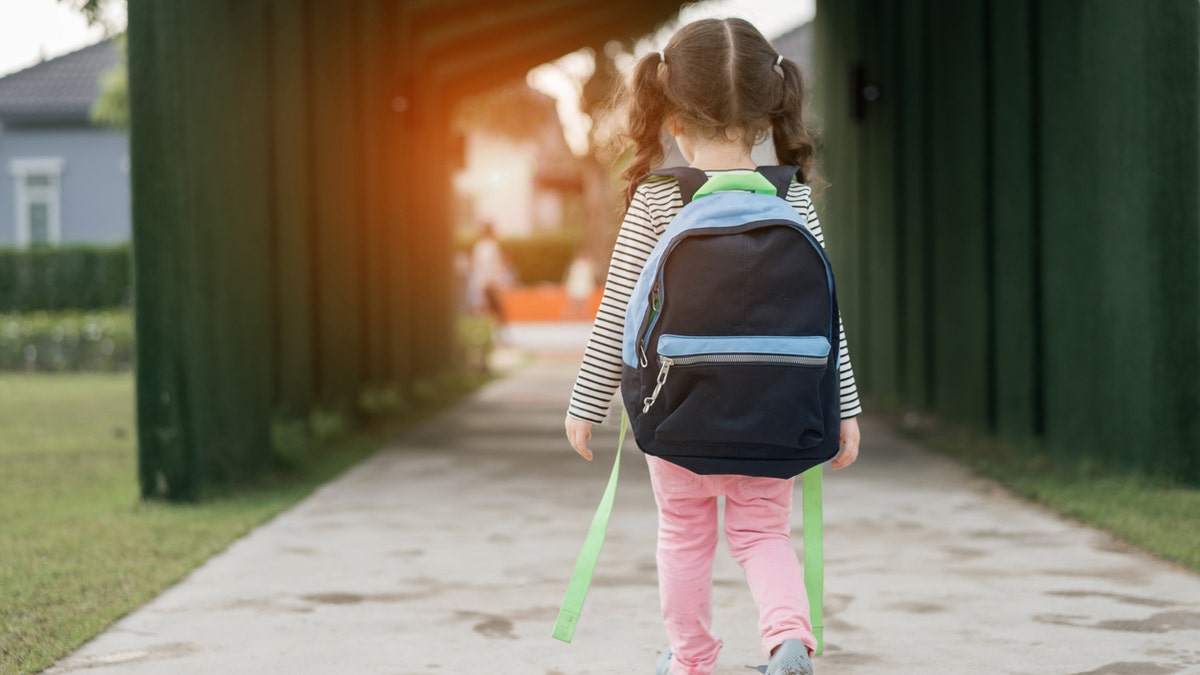
The NCMEC advises parents of the following: Don't say to kids: "Never talk to strangers." Do say to kids: "You should not approach just anyone. If you need help, look for a uniformed police officer, a store clerk with a nametag or a parent with children." (iStock)
In regard to abductions, a "nonfamily abduction" happens when a child is taken by someone who is known but not related to the child — "such as a neighbor or an online acquaintance, or by someone unknown to the child," the National Center for Missing & Exploited Children (NCMEC) wrote in its report on Analysis of Nonfamily Abductions Reported to NCMEC from 2016-2020.
"Nonfamily abductions are the rarest type of case and make up only 1% of the missing children cases reported to NCMEC," the organization stated.
Between 2016 and 2020, 366 of NCMEC's case intakes involved children who were abducted by someone who was not a family member, however, two-thirds (65%) of these children knew their abductor to some extent — similar to what Whalen addresses in her TikTok video.
DON'T PERSONALIZE YOUR KIDS' SCHOOL BACKPACKS. HERE'S WHY.
In some of these cases, the abductor was a stranger to the parents but known to the child (such as online enticement situations) "or the abductor was a trusted family friend or babysitter," according to the NCMEC.
Thousands of people posted comments on Whalen's video, which received more than 765,000 views on TikTok alone. People praised her acknowledgment of the "strange behavior" talking point.
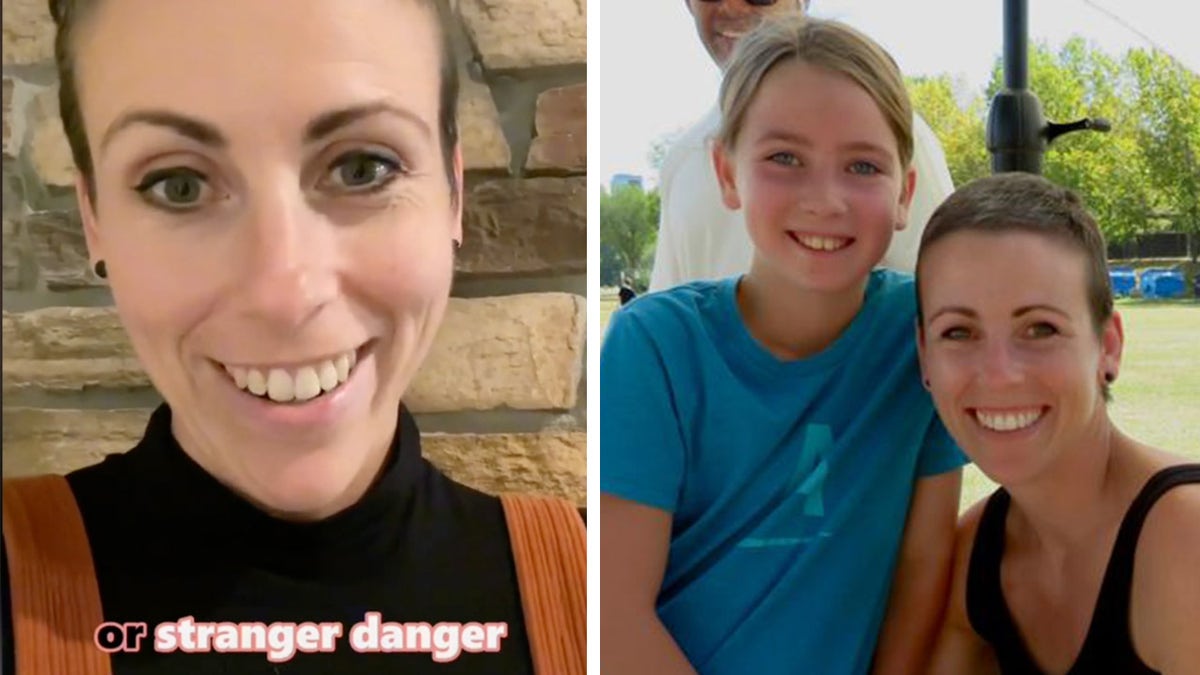
Whalen shared her video on both TikTok and Instagram. On TikTok, some users revealed they had been abused — and that their abuser was someone they knew. (Marcie Whalen)
"As a child therapist, this is amazing," one woman wrote.
"The huge influx of cases after the whole "stranger danger" campaign … all the kids thought they were safe cause it was someone they know," another wrote.
Some, leaving more personal comments, also thanked Whalen for her advice as they revealed that their abuser was someone they knew.
POLICE WARN PARENTS ABOUT 'SCHOOL PHOTO' TREND OF OVERSHARING ON SOCIAL MEDIA
"As someone who was SA [sexually abused] as a child by a family member, this is something I always tell my friends with kids to teach their kids!" one user commented.
"This is so important, my abuser was someone very close in my family unit, and I trusted him because I thought only strangers did bad things," another chimed in.
"For me, it was my father," one person claimed. "Secrets within the family are now a no-go for my kids. Nothing is secret. Telling a secret will NEVER get them in trouble."
Other commenters pointed out that "stranger danger" is just as important to teach.
"All valid points, however stranger danger must also be addressed. Strangers will act nice until It's too late."
"My parents taught me to talk to employees if I was scared or lost. They weren’t strangers, they were there to do a job," one woman wrote.
However, Whalen said she will always teach her children the concept of stranger danger combined with strange behavior.
In its online resource guide, "Rethinking Stranger Danger," the NCMEC states how the term "stranger danger" can ignore how most children are abducted [or abused] by someone they know.
"When you talk to your children about abduction prevention, don’t focus on warning them about certain types of people. Instead, teach them to identify and respond to threatening situations," the NCMEC advises.
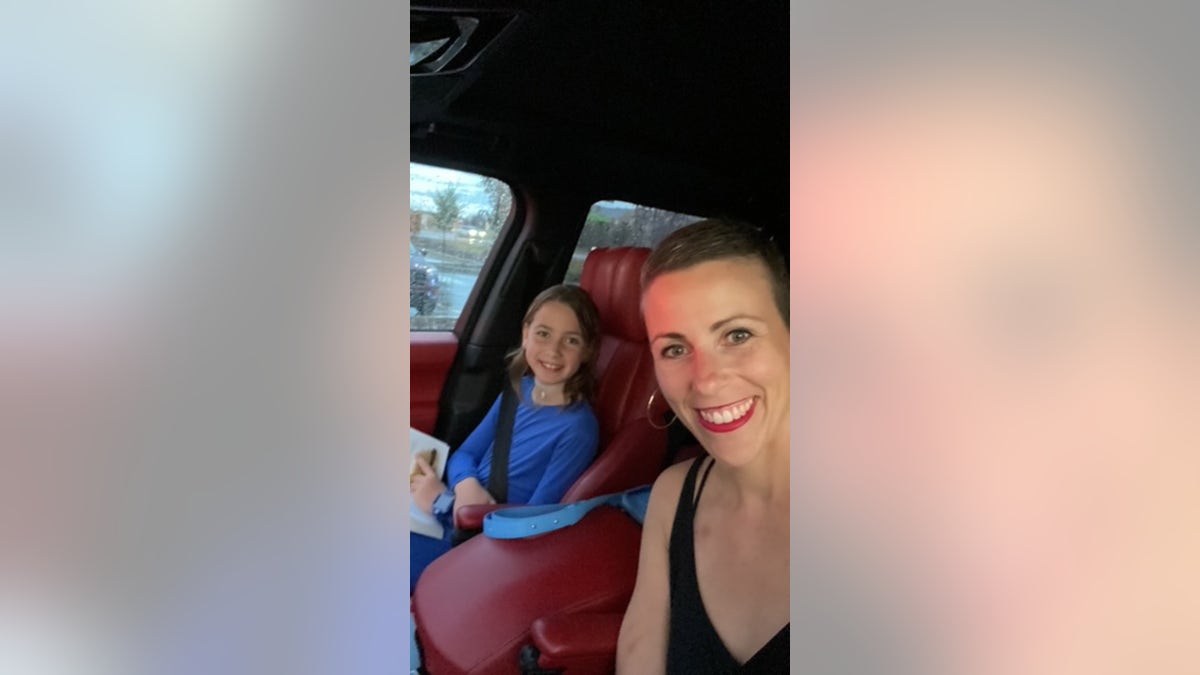
Whalen snaps a selfie beside one of her daughters. Her viral TikTok video about strangers has people sounding off about child sex abuse, stranger danger and strange behavior. (Marcie Whalen)
Resources education kits and more advice can be found on www.missingkids.org/education/kidsmartz.
Dr. Samar of New York also offered other vital tips on abuse and strange behavior.
Teach kids about their bodies. No one should touch your body, ask to see your body, show you their body parts or ask you to touch their body parts.
Depending on your child's age, it's important to let them know in some way that what happens to their bodies is up to them, Samar said.
CLICK HERE TO SIGN UP FOR OUR LIFESTYLE NEWSLETTER
Respect your child’s boundaries. If your child appears to be uncomfortable with giving physical affection, even toward a relative, listen to their judgment.
"Respect when a kid says no to certain touches and interactions with other people because then they can trust themselves more when they say no," Samar said. "If the adults take that seriously, then they're more likely to say [no] in a more dangerous situation."

"If we're hearing them say, ‘No’ and we say, 'No, no, no it's just your grandparent or it's just an uncle or an aunt' … then we're kind of teaching them that even when they say they feel like they don't want to, they have to do it anyway because the adults are pushing them to," said Dr. Stephanie Samar of New York. (iStock)
'We don’t keep secrets.' Teach your kids that they should always tell their parents or caregiver or another trusted adult if something feels off.
CLICK HERE TO GET THE FOX NEWS APP
Samar said, "[Tell them], 'If anyone is making you feel uncomfortable, anyone is telling you to keep secrets from us, you come and tell us immediately. We're going to keep you safe.'"
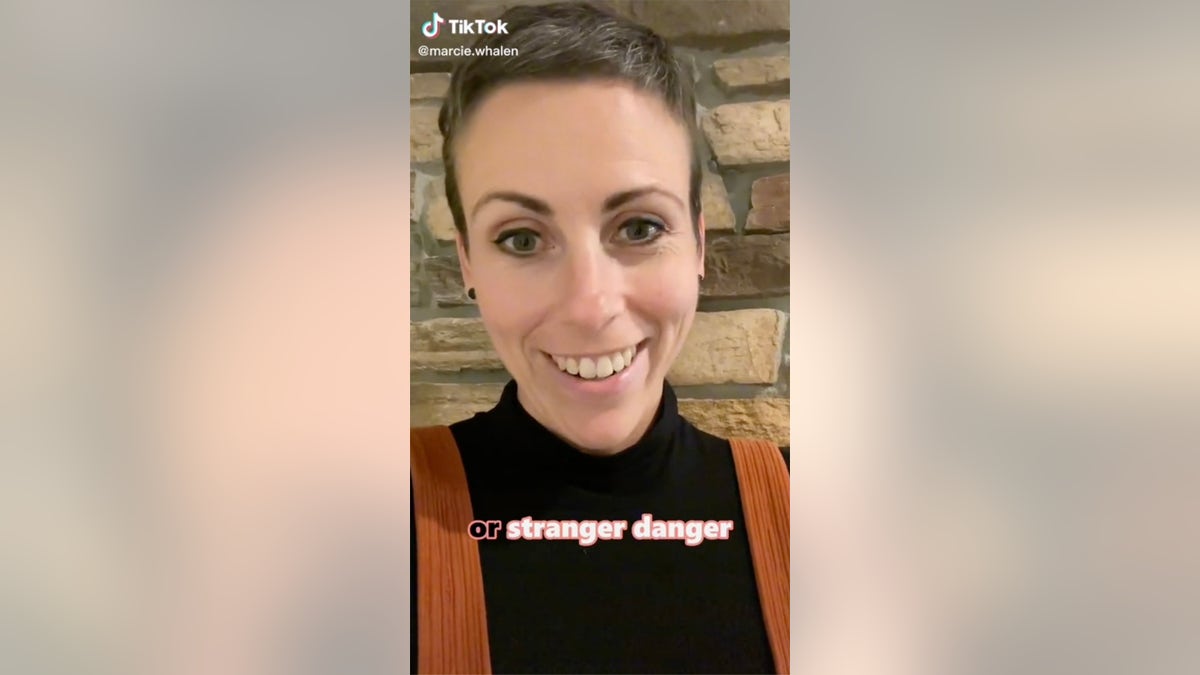
Nonfamily abductions make up only 1% of the missing children cases reported to the NCMEC, according to the organization. However, of the 366 case intakes where children were abducted by someone who was not a family member (between 2016-2020), 65% of those children knew their abductor to some extent. (Marcie Whalen)
Whalen said she wants to continue to spread the message that parents should teach their child not only what to think, but more importantly, how to think.
"As they get older, they'll have wiser discernment," she added.





















